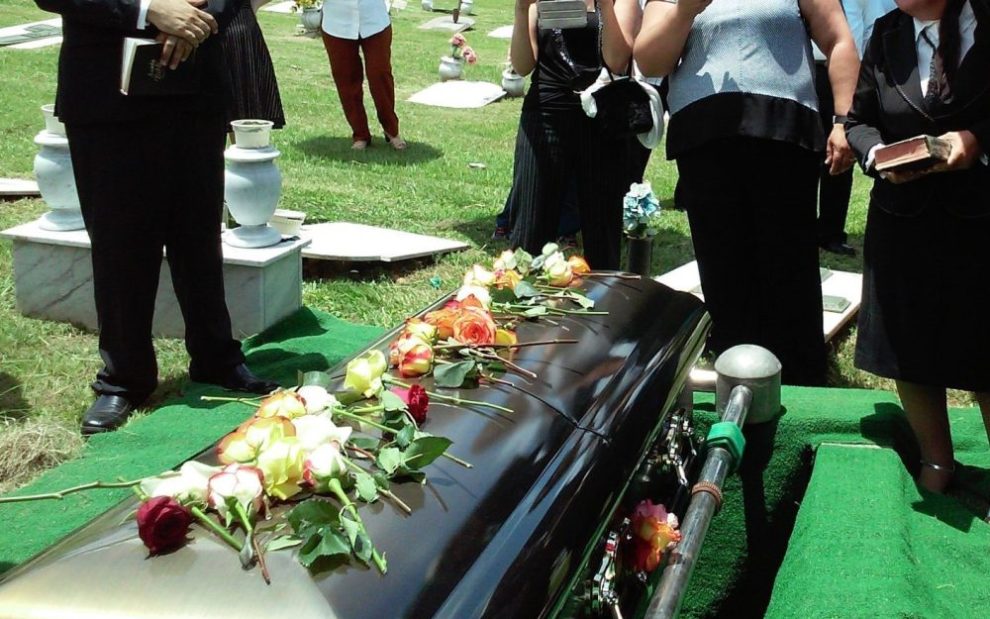On February 15, 2024, over a thousand people gathered at St. Patrick’s Cathedral in New York City to celebrate the funeral of Cecilia Gentili, a prominent transgender activist and advocate for sex workers and people living with HIV. After the funeral took place, a firestorm of controversy erupted. The pastor of the cathedral, Father Enrique Salvo, described the event as sacrilegious, deceptive, and a scandal. Some commentators decried the behavior of the participants, and others observed that Gentili was an avowed atheist who should not have received a Catholic funeral.
Should church officials have prevented the event? Are there rules that tell us who is allowed to have a Catholic funeral, and who is not?
In a sense, the term Catholic funeral is misleading, since there is not just one funeral ritual that Catholics celebrate when someone has died. The Order of Christian Funerals, which governs Catholic funeral ceremonies in the United States, speaks of three distinct liturgical rites: the vigil, the funeral liturgy, and the rite of committal. These rites are centered around the home, the church, and the place of interment, respectively. Traditionally linked by processional rites and enriched by local customs, these rituals are referred to collectively as a funeral.
There is also no such thing as a Catholic funeral in a strict theological sense. Funeral rites may be regulated by the Catholic Church, shaped by distinctively Catholic customs, and culminate in a Catholic celebration of the Eucharist. However, the funeral itself refers to the identity of the deceased as a Christian.
The church does not offer funeral rites to individuals because they are Catholic but rather because they have been baptized into the life, death, and resurrection of Jesus Christ. To celebrate a Catholic funeral is not to affirm that the person who has died was a good Catholic but rather that this person, through the grace of baptism, has died in the hope of eternal life with God. In principle, a Catholic funeral is appropriate for any Christian.
In practice, the celebration of Catholic funerals is governed by canon law. The church ordinarily permits its funeral rites to be celebrated for any Catholic person, any catechumen who died while preparing for baptism, and any child whose parents intended for them to be baptized.
These last groups are included in modern church law as a result of the traditional notion of “baptism by desire.” Canon law likewise permits funeral rites for non-Catholic Christians, so long as it is appropriate in the judgment of the local bishop, not contrary to the wishes of the deceased, and no minister of the person’s own ecclesial community is available.
At the discretion of a bishop, it is possible for the church to withhold its funeral rites. This is done only for persons who at the time of their death were willfully separated from the church.
In this case, the church’s concern must always be pastoral in nature. To deny someone access to a Christian funeral is not a punishment for the deceased or their loved ones. Nor is it a judgment against the state of a person’s soul:
No one can state with certainty whether a person has died reconciled to God. To withhold funeral rites is only permissible to guard against confusion among the living faithful. Given the potential for harm, I believe that such cases should be few and far between. I describe these rules and leave it to the prudent Catholic to form an opinion on Gentili’s funeral.
At any rate, the rules only tell us so much about the meaning of a Christian funeral. If we want to understand what is happening in these celebrations, we must go to the essentials: What does it really mean for a person to die?
A typical answer to this question is that death consists of the separation of the soul from the body. This is a fairly rudimentary definition of death, which describes in general metaphysical language a stark physical reality: The human body ceases to function. Whatever mysterious thing gave this body life, whatever infused this organism with a dynamic personal presence, is now gone.
One problem with this definition is that it does not tell us much about the mystery of the person herself or what precisely has been lost in death. It may be so that the body is no longer animated, but in what sense has the person now departed?
The great theologian Karl Rahner wrote that in order to understand the meaning of death, we must first understand what it means to be a human person. He proposed three existential characteristics: to be a person is to be free, to be embodied in space and time, and to be in relationship. When these qualities have been lost, then the person has died. They have departed the world of our ordinary experience.
This does not mean, however, that the individual has been annihilated. Rather, they have entered into the abundant love and infinite mystery of God. The meaning of death, says the Catechism of the Catholic Church, is transformed by Jesus Christ. In him we know that to die is not to be destroyed but rather to make passage, as he did, from life on this Earth to the life of the resurrection. This is the completion of the new birth that began at our baptism. In sacraments we were nourished in the womb, and now in death we are born to the new life which was promised all along.
Importantly, the funeral itself is not a sacrament. Sacraments are for the living, to sustain us in our journey to God. To celebrate a funeral is a different kind of liturgical act undertaken by the people of God. It is an act of hope in the power of the Spirit, and it has a twofold purpose: to console those gathered and to commend this person to the mercy of God.
The funeral is also a celebration of humanity, as embodied in this particular person. When we remember this person’s life and death, alongside the eucharistic memorial of the life and death of Jesus Christ, we rejoice in the mystery of our infinite human dignity.
Catholic teaching for centuries prohibited cremation and still prohibits practices like alkaline hydrolysis and human composting. It also requires that the resting place of human remains be marked with a person’s name. Such regulations are meant to safeguard the dignity of the person. Human persons are not just matter to be returned to the ecosphere. They are individuals, deeply related to the Earth but also valued by God in their specificity. God remembers each of us forever, and so in our funeral rites, we remember one another.
This article also appears in the November 2024 issue of U.S. Catholic (Vol. 89, No. 11, pages 29-30). Click here to subscribe to the magazine.
Image: Shutterstock.com/Amy Lutz













Add comment